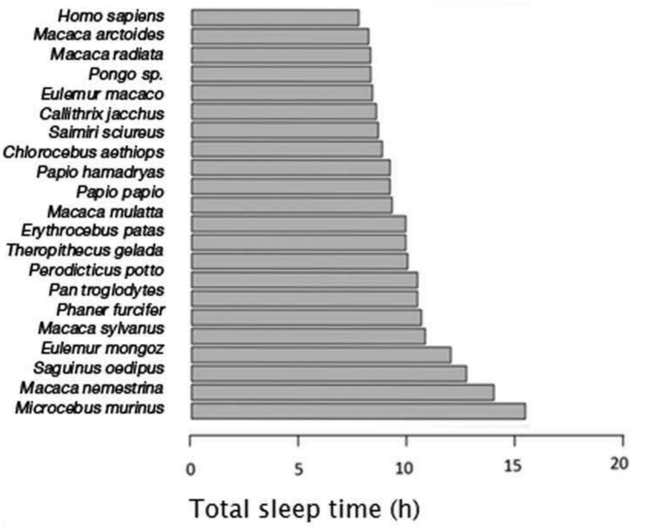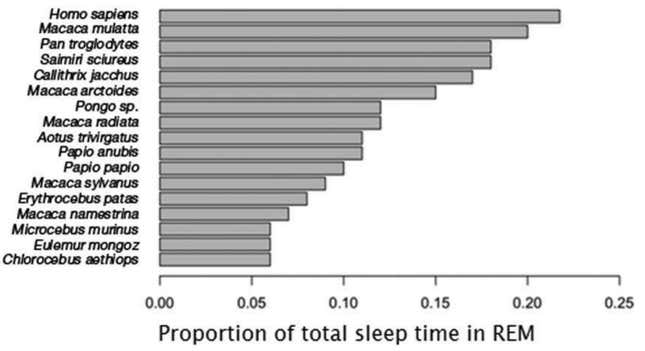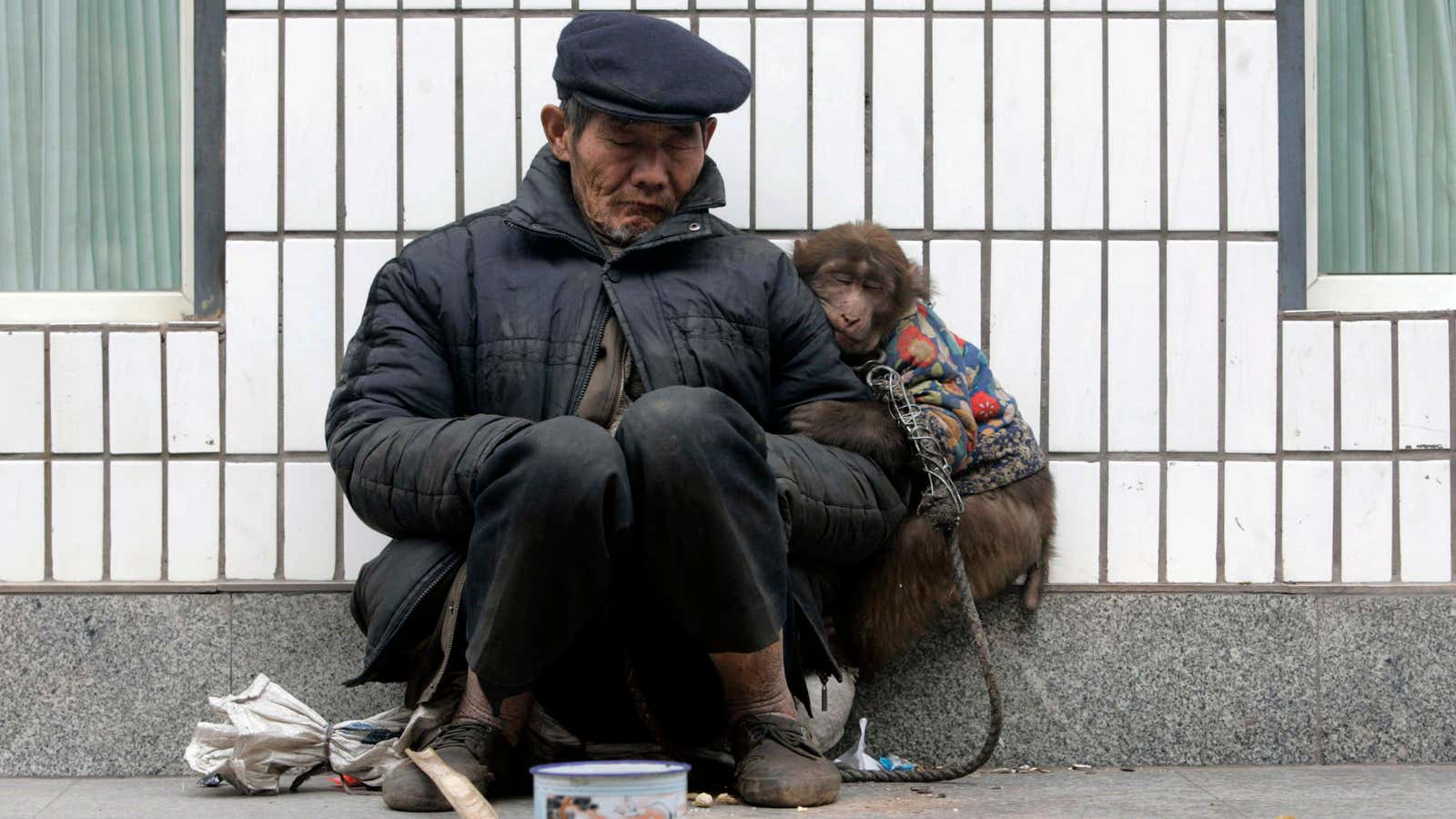There’s much that we share with our primate ancestors: opposable thumbs, ability to eat many kinds of food, living in large social groups, and so on. Yet, it is perhaps one trait we don’t share with them that has made us the top species of the planet: a weird sleeping pattern.
Across populations and different ages, on average humans sleep about seven hours. That is, a new study published in Evolutionary Anthropology argues, exceptionally short when compared to other primates.

To arrive at this conclusion David Samson and Charles Nunn of Duke University combined data from more than 20 other primates. The variation is large: mouse lemurs sleep more than 16 hours a day and humans sleep less than half that.
To a certain extent, body size and the number of animals in a social group explain the observed sleeping patterns. But us, Homo sapiens, stand out as an exception, probably because we evolved to sleep more efficiently.
Sleep is broadly divided into three phases: light, deep, and REM (rapid eye movement). Each phase is crucial, but it is in REM phase—normally characterized by dreaming—that the most important restorative activities, such as consolidation of memories and clearing out waste from the brain, occur. It is also in this phase that humans spend more than a fifth of their sleep, which is proportionally more than any other primate.

Samson and Nunn believe that evolutionary pressure could have driven the change in sleeping patterns. According to fossil records, about 20 million years ago, our ancestors grew too big to sleep on tree branches. For instance, no primate more than 30kg sleeps on a branch. Rather, many large primates build sleeping platforms each night from whatever material is available at hand.
The result of this change is apparent even today. In a separate study, Samson showed that orangutans performed better on cognitive tests if they used more comfortable material, such as foam, to build their sleeping platform.
Early human ancestors descended from trees and began sleeping on the ground about 2 million years ago. As risks of falling off from branches decreased, sleep quality improved. This could have allowed for cognitive developments, which would then help humans create better sleeping conditions, such as sleeping around fires to ward off predators. This, in turn, would have improved our cognitive abilities and so on goes the positive feedback cycle till humans evolved the most powerful minds.
Still, the hypothesis is not without its flaws. For instance, their small size should have allowed mouse lemurs to sleep efficiently in protected tree crevices. Yet, they spend so much time sleeping. And though humans are exceptional among primates in achieving a high proportion of REM sleep, they are beaten by other mammals such as platypuses.
We’ll know from more research if the flaws can be explained because evolution of sleep occurred differently in parts of the tree of life. Nonetheless, it is clear is that sleeping fewer hours certainly boosted our chances to dominate the planet.
